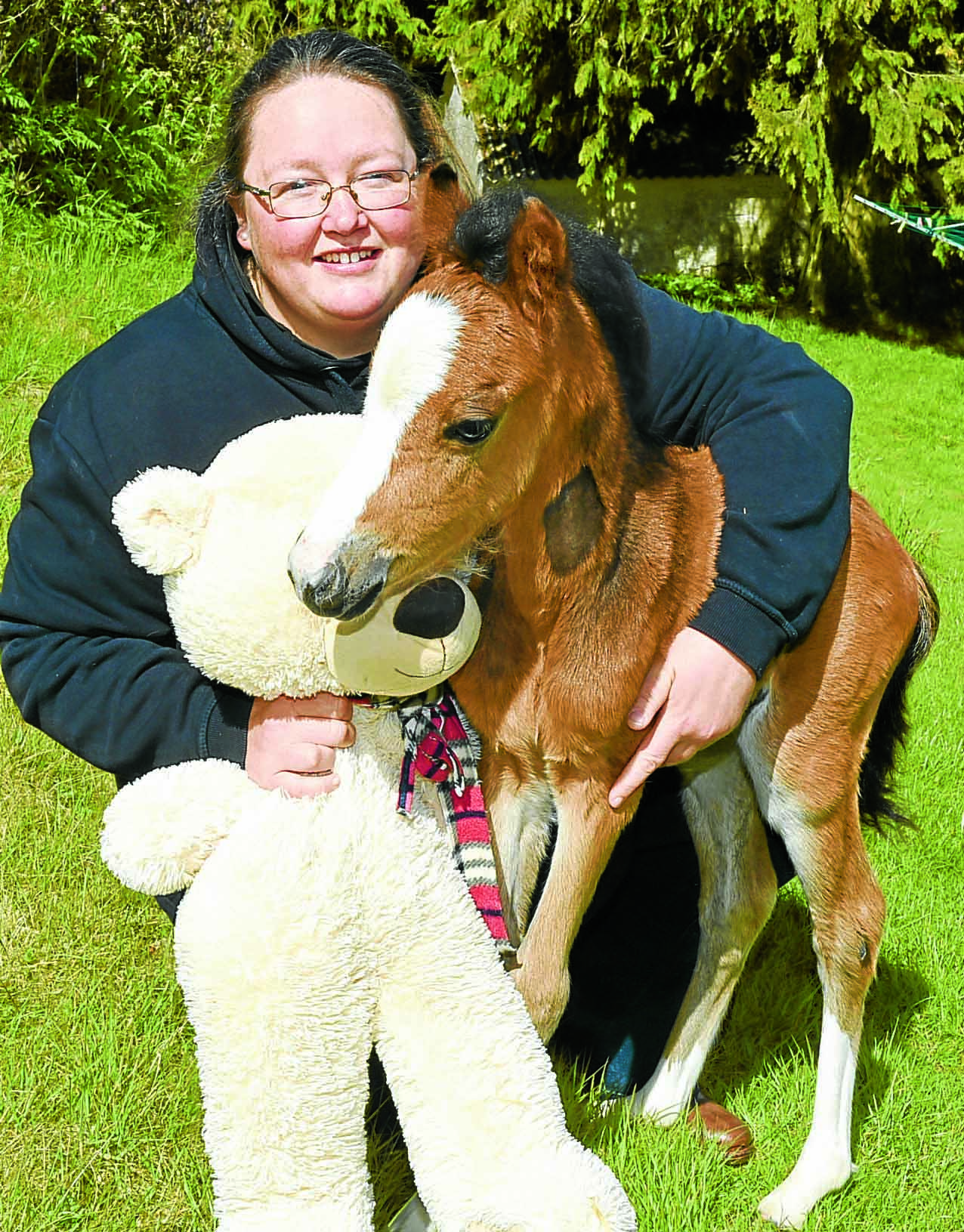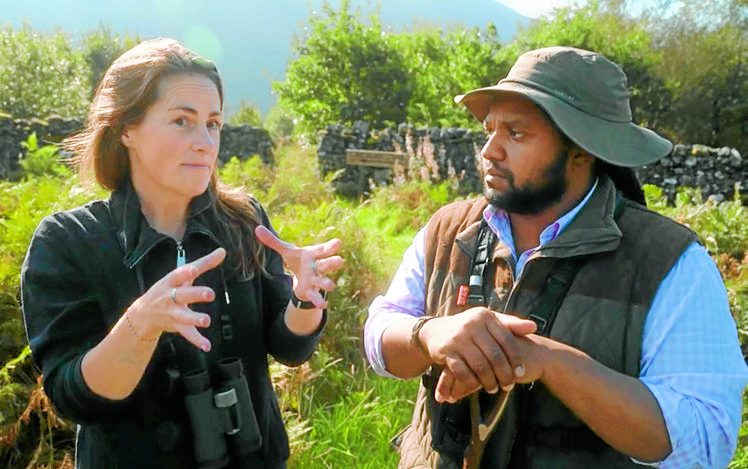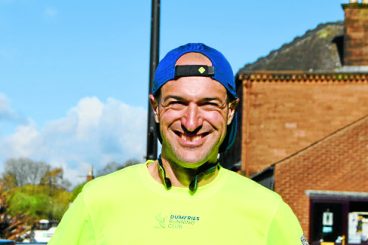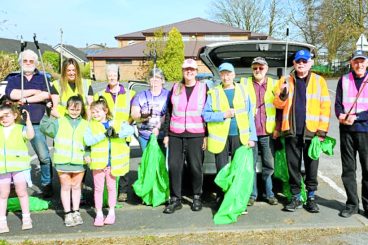Colin was born as a ‘dummy foal’ and had the odds stacked against him when he was delivered around three weeks early.
However, vet Fiona Dalgliesh used a relatively new technique, the ‘Madigan Squeeze’, to help the tiny foal realise he had been born, gave him a plasma transfusion using blood she had extracted from her own stallion and even slept alongside the leggy animal in her kitchen so she could monitor him.
The drama began last month when six-year-old mare Paris, a children’s show pony owned by Zoe Hyslop of Maxwelltown Farm, Irongray, became ill while with foal and required urgent veterinary attention.
Fiona, who is from near Lockerbie, diagnosed surgical colic and knew going under the knife was the only option if they wanted to try to save either animal.
She said: “We thought, going into the operation, that if Paris survived it would be a miracle, but we were hopeful that we could save the foal.
“We actually managed to right the issue in Paris, but unfortunately she either went into toxic shock or had a blood clot. She did manage to get up, but then she went back down and faded away quite quickly.”
Once they got the foal out, Fiona explained, it was a good five minutes before he took his first breath.
And she added: “It was a relief when we finally heard him.
“He was born a dummy foal because he hadn’t been through any of the natural triggers to make him realise he had been born.”
When in utero, foals are in a very subdued state. A few days before birth, a chemical surge in the mare passes to the foal and then the actions of contractions help complete the process, Fiona explained.
She said: “He was essentially born sleeping, and was like that for around the first 24 hours.
“We were looking at him thinking ‘what are we going to do?’”
Fiona decided to apply the Madigan Squeeze technique, a practice only discovered around 2015.
She tied ropes around his chest and pulled on them for around 20 minutes to mimic the movement through the birth canal and ‘wake’ the dummy foal.
Unlike humans, foals do not receive antibodies via the placenta.
Instead, they usually come from the colostrum and are fast-tracked into the horse’s system thanks to a very permeable gut.
Due to his sleepy state, Colin was unable to be tube fed for the first 24 hours and ended up shedding part of his gut lining.
Fiona extracted more than three litres of antibody-rich blood from her stallion and extracted the plasma from it for a super transfusion for Colin.
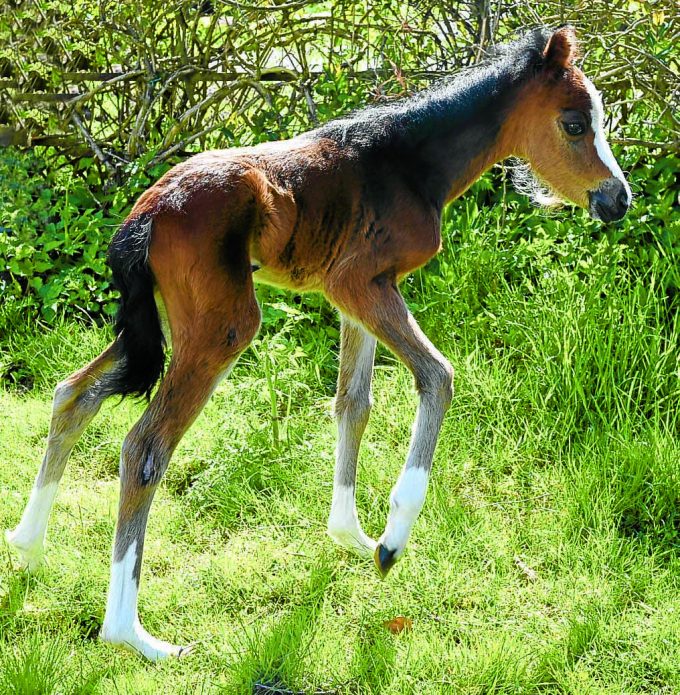
She said: “He had that lying in my own kitchen!
“After he had the plasma and squeeze he woke up quite quickly, he began doing everything you would expect.
“He kept us awake all night – I sat with him until 4 am, but thankfully a friend watched him from 4 am until 7 am so I could get some sleep.”
Colin stayed with Fiona for two weeks before being allowed ‘home’ for a weekend visit, where he lived in his owner’s lounge.
Now, Fiona is in the process of getting him fostered on to a mare who foaled late last year with the hopes that he will suckle from her.
If he doesn’t he will have to be bottle fed by the Hyslop family.
Zoe said: “Fiona has gone above and beyond for us, and for Colin and we want everyone to know how great she has been.
“She deserves a huge, big thank you.”





